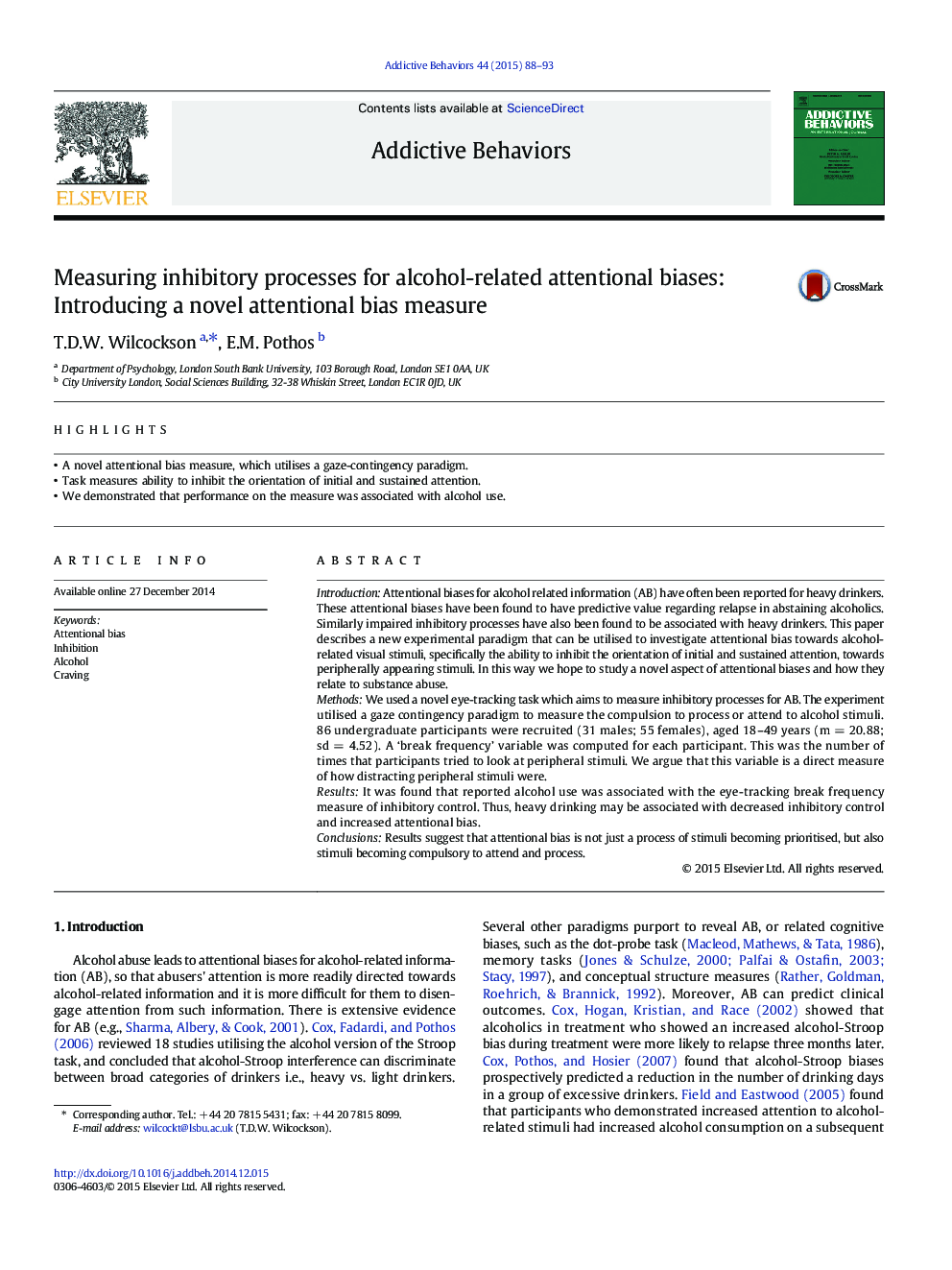| کد مقاله | کد نشریه | سال انتشار | مقاله انگلیسی | نسخه تمام متن |
|---|---|---|---|---|
| 898709 | 1472527 | 2015 | 6 صفحه PDF | دانلود رایگان |
• A novel attentional bias measure, which utilises a gaze-contingency paradigm.
• Task measures ability to inhibit the orientation of initial and sustained attention.
• We demonstrated that performance on the measure was associated with alcohol use.
IntroductionAttentional biases for alcohol related information (AB) have often been reported for heavy drinkers. These attentional biases have been found to have predictive value regarding relapse in abstaining alcoholics. Similarly impaired inhibitory processes have also been found to be associated with heavy drinkers. This paper describes a new experimental paradigm that can be utilised to investigate attentional bias towards alcohol-related visual stimuli, specifically the ability to inhibit the orientation of initial and sustained attention, towards peripherally appearing stimuli. In this way we hope to study a novel aspect of attentional biases and how they relate to substance abuse.MethodsWe used a novel eye-tracking task which aims to measure inhibitory processes for AB. The experiment utilised a gaze contingency paradigm to measure the compulsion to process or attend to alcohol stimuli. 86 undergraduate participants were recruited (31 males; 55 females), aged 18–49 years (m = 20.88; sd = 4.52). A ‘break frequency’ variable was computed for each participant. This was the number of times that participants tried to look at peripheral stimuli. We argue that this variable is a direct measure of how distracting peripheral stimuli were.ResultsIt was found that reported alcohol use was associated with the eye-tracking break frequency measure of inhibitory control. Thus, heavy drinking may be associated with decreased inhibitory control and increased attentional bias.ConclusionsResults suggest that attentional bias is not just a process of stimuli becoming prioritised, but also stimuli becoming compulsory to attend and process.
Journal: Addictive Behaviors - Volume 44, May 2015, Pages 88–93
